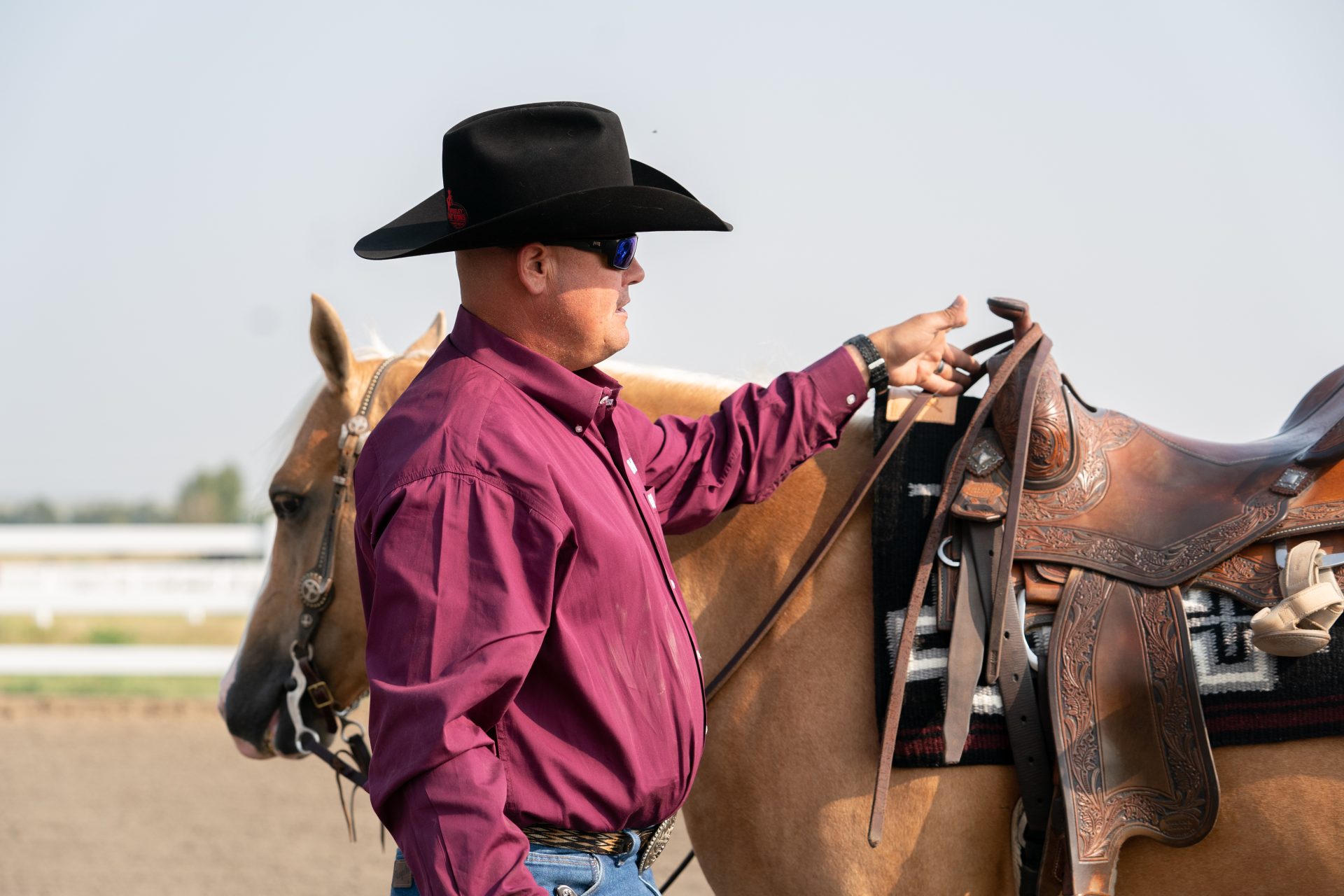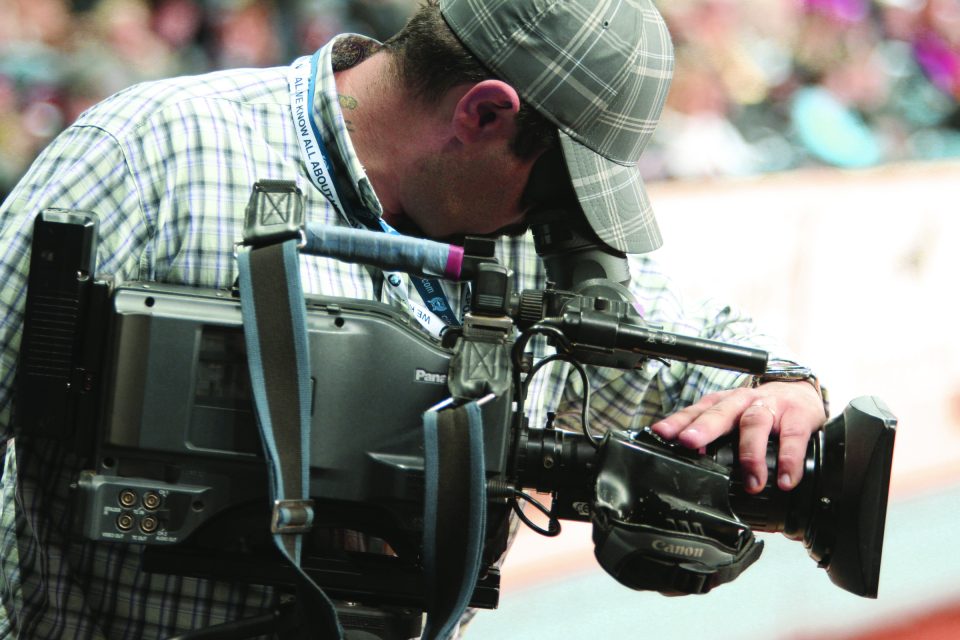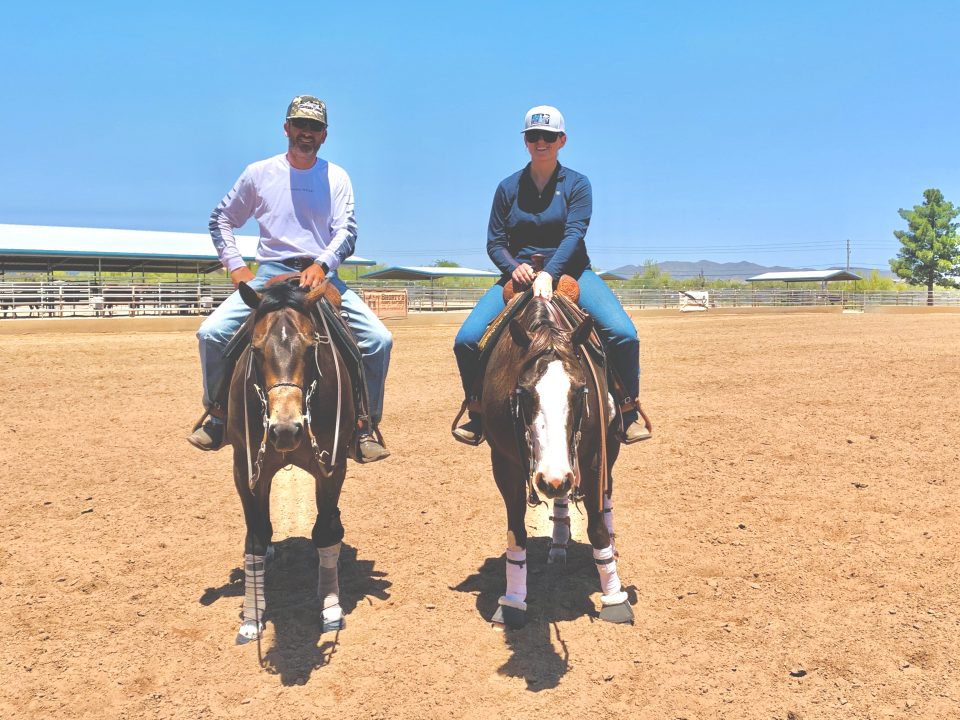Sometimes life requires you to pivot your career. Here are three NRHA Professionals who’ve done it with great success.
By Jennifer Paulson

Every NRHA Professional chose training horses as a career for a reason: a love for the horse. While there are many horse-related careers to pursue that include reining, becoming an NRHA Professional allows you to immerse yourself in the community and culture of the sport. As much as you love the reining horse and the sport of reining, you might reach a point in your career when it’s time to pivot away from full-time training to a different focus. One that still includes reining horses and the community you’ve come to love, but allows you to thrive in different situations, professional and personally.
This crossroads can come at any point in your career. We spoke with three NRHA Professionals who’ve successfully pivoted their reining expertise into other areas of the sport. They continue to contribute to reining in many ways, but they might not spend their days riding colts, hauling to major events, or coaching non pros.
Shane Brown built a lucrative, successful business in Elbert, Colorado, training aged-event horses, coaching youths and nonpros, and facilitating horse sales. He’s since moved to Texas and trains a limited number of horses out of another NRHA Professional’s facility.
Brent Loseke grew up in Nebraska on a cattle ranch, but always had his eyes on horses. He spent a few years focusing on aged-event reining horses, but chose to focus on 2-year-olds, starting some of the most influential reiners of today. From that first pivot, Loseke found himself with another opportunity in his path—managing and promoting stallions Colonels Shining Gun and Patriot.
Steve Ross’ voice is one of the most recognizable in our sport. Ross has trained horses since he was 13 years old, eventually working for NRHA Hall of Famer Doug Milholland for three years. Ross now focuses on pairing riders with their perfect horse match by selling reining and ranch riding horses of all levels as well as commentating major events.
Here they’ll share their insights on pivoting in four parts:
Part 2: How to Use Your Network
Part 3: Transition With the Right Support
Transition With the Right Support
As in all things, it can take a village—or at least a supportive spouse or partner—to pivot your business in a new direction.
Brown relates that he had his wife spent a week in Texas before making his decision. The climate and lifestyles are very different between Eastern Colorado and North Central Texas, so he wanted to ensure she was completely on board. The pair now looks forward to working together.
Loseke and his wife, Paula, set out on this adventure together as he began to refocus his business. She handles much of the paperwork and provides promotional support when marketing the stallions, along with being a ranch realtor.
Ross relies on his wife, who manages all the many fine details of their business, and Jordan Sweetin who is part of their training operation. Ross also leans on a strong team that supports his business, including his bookkeeper, accountant, and attorney.
“It’s too much for us to navigate the intricacies of business law and tax law,” Ross says. “We want to be sure we’re compliant and profitable.”
Read the rest of this article at the links above.



